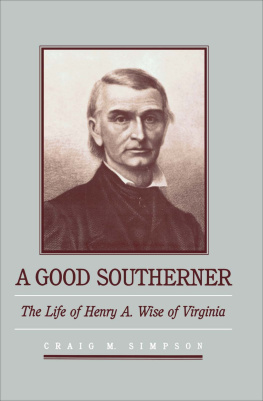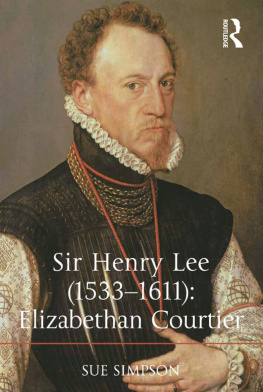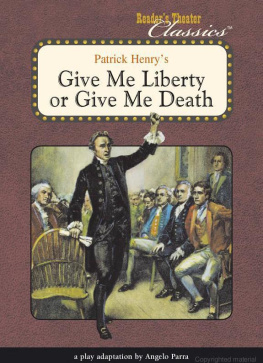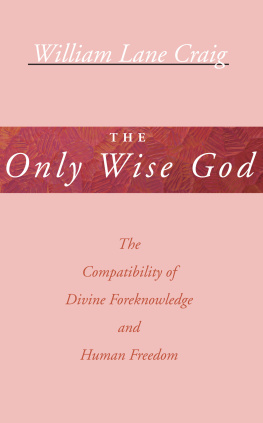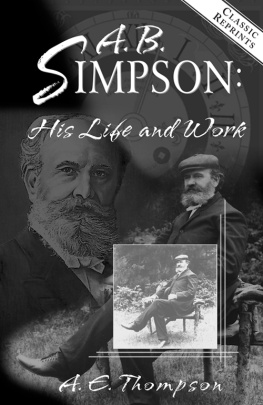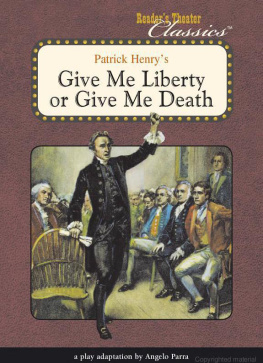1985 The University of North Carolina Press
All rights reserved
Manufactured in the United States of America
Library of Congress Cataloging in Publication Data
Simpson, Craig, 1942-
A good southerner.
(The Fred W. Morrison series in Southern studies)
Bibliography: p.
Includes index.
1. Wise, Henry A. (Henry Alexander), 18061876. 2. LegislatorsUnited StatesBiography. 3. United States. Congress. HouseBiography. 4. Virginia GovernorsBiography. 5. DiplomatsUnited States Biography. 6. United StatesPolitics and government 18151861. 7. VirginiaPolitics and government1775 1865. I. Title. II. Series.
E415.9.W8S57 1985 328.730924 [B] 84-7384
ISBN 0-8078-1623-X
Designed by Patrick G. OSullivan
THIS BOOK WAS DIGITALLY MANUFACTURED.
Preface
I call Wise a good Southerner because he would have wanted it that way. He took pride in efforts to sustain the best traditions of Southern masterhood while acknowledging the influence of world opinion and respecting the powerful forces opposed to the South. He never stood with those in his state or region who counseled resistance to change. Indeed, he embraced to some extent the ethic of his eventual enemies on the battlefield. Systematic, industrious, and always with an eye to the main chance, he believed that he might defeat the Yankees at their own game. He regarded himself as flexible, resilient, and well-informed. The dull men around him inspired only his contempt, which of course they cordially reciprocated. Reversing Virginias decline from her Revolutionary glory created challenges enough to fill a lifetime. Innovation and modernizationwhether in the form of improved education, political rights for the white masses, or internal improvements on a grand scalewould allow his troubled state to ride out the storm. If enough could change while enough remained the same, Virginia might even reclaim her entitlement. The Wises, more prescient than most, would thus stand ever deserving of their states and the Unions honors.
Wises vision allowed him to project a sense of hopefulness and energy that focused popular aspirations. Although many found him incomprehensible and bewildering, and others despised his arrogance, most accorded him a grudging respectif for no other reason than that his presence automatically jacked up the emotional ante. He never bored anyone. Disgusting and loathsome some felt he wasas they inspected his shabby clothes, grew more than vaguely uncomfortable at having their conversations dominated, stood clear of his spewing tobacco juice, and tried to overcome their embarrassment at his foul language. Fascinating and incredible, others exclaimed. Perhaps only Virginia could have produced such a paradoxical man. His later portraits suggest a man of no half measures. Thin and intense, hard-eyed and coiled, he seems ready to assault anyone who might dare to stand before him and utter a trifling remark or suffer such a thought to pass.
Wises politics looked to the transcending of many of the choices he finally made. Deflected from his hopes by national crises, he gave ground bitterly. He wavered and vacillated under the pressure of attempting to hold together fragmenting loyalties. Moreover, he read of his own contributions to the crisis. Here, many claimed, was a master Southern ideologuea dueling slave driver for whom violence was always an option. Or was he, as many Southerners believed, an opportunist totally devoid of principle, ever ready to sell out his state and region? Attempting to straddle the diverse interests of several constituencies, he became his own political machine, constantly turning out letters, addresses, and occasional tracts. Trusting few, he longed to operate independently on the electorate. He best obtained this lonely rapport in the oratory that made him famous. Speechmaking also permitted him to mask or dissolve his uncertainties.
Among the many paradoxes he found difficult to resolve was the impossibility, in his view, of behaving like a decent man while succeeding at politics. Good Southerners and good men were allegedly possessed of both vision and conscience. Honor had palpable meaning. So did Christian duty. Even the slaves deserved kindness and justice. But what Wise wanted to believe of himself reflected the fantasy and romance of what should have been. The retreat from some of his best intuitions, the lies, deceptions, and silences, the hunger for recognition and assurance, left a series of spiritual abrasions that manifested themselves in anger, frustration, and fury. Like his state and his region, Wise was more troubled than some historians have recognized. His fabled eccentricities of conduct and policy resulted from constant effort to harmonize and integrate objectives increasingly at variance with one another and to live in accord with different ethics that also clashed.
From the early 1830s until his death in 1876, no Virginian other than Robert E. Lee lived a more important public life. As a congressman from 1833 until 1844, Wise broke fatefully with Andrew Jackson and lent powerful support to the emerging Whig opposition. He also acquired considerable notoriety as a result of his idiosyncratic contributions to Southern extremism during the gag rule debates. Eventually he joined the so-called Virginia Cabal, that small group of Whigs who bolted the party to support President John Tyler in the early 1840s. After an acrimonious tour as United States minister to Brazil in the mid-1840s, he returned to dominate Virginias Constitutional Convention of 1851. He won election as governor in 1855 and thus encountered John Brown at Harpers Ferry. Ambitious to redeem the nation as a presidential candidate in 1860, Wise thereafter led Virginia out of the Union in April 1861. He served four years as a Confederate brigadier and was never again able to assert his customary political influence, although friends and enemies alike persisted in thinking him too dangerous to discount.
The traditional tests of biographical relevancerepresentativeness and significanceimply both a focus on externalities and on a subjects achievements. I want to meet those criteria, but in such a way that I show Wises feelings and attitudes resonating with his environment. Complex as he was, he could never be explained by a facile approach. I wish to follow a mode that seeks to integrate what we can know of his private and intimate life with his public action. How this integration took place at various times illuminates Wises motives. Certain predispositions from childhood, for example, along with his upbringing and his need for assurance influenced his career. Similarly, Wises posturing, scheming, and above all his falsehoods and self-deception offer a commentary on his character. Few public figures have published more and longer vindications of their own conduct. It is thus difficult for me to place any more credence in a concept of Political Man than most sensible people place in a concept of Economic Man.

